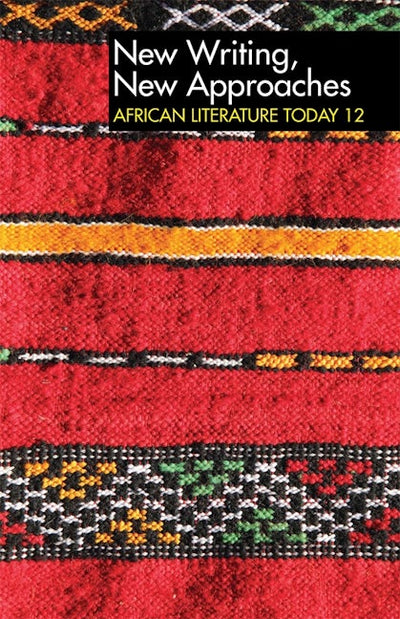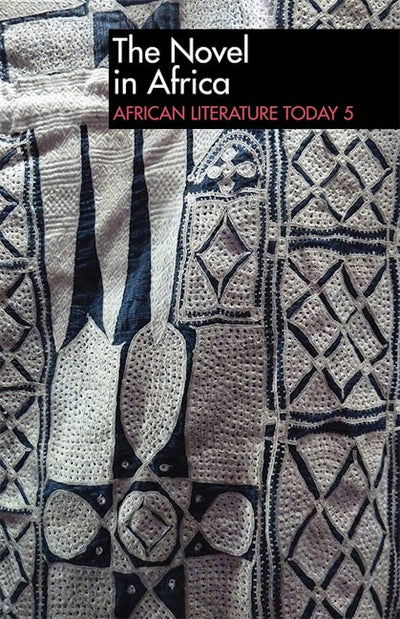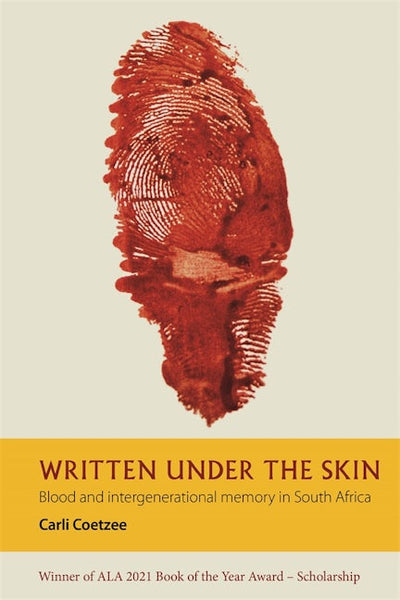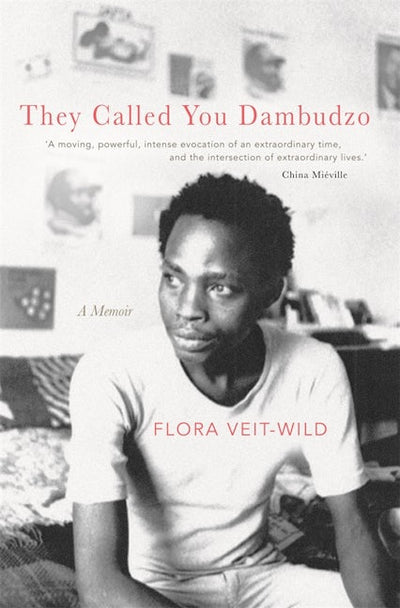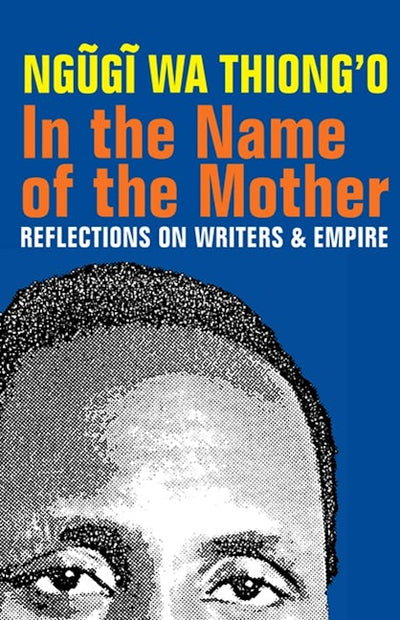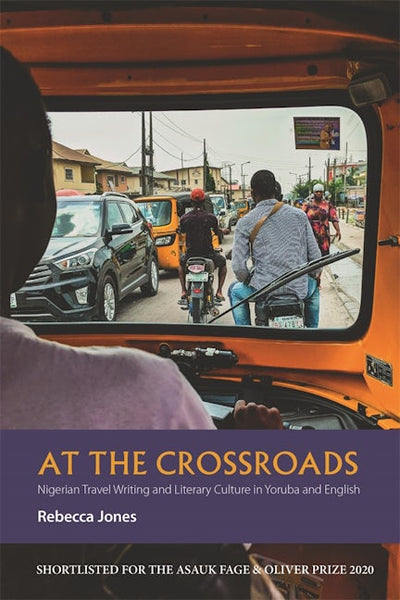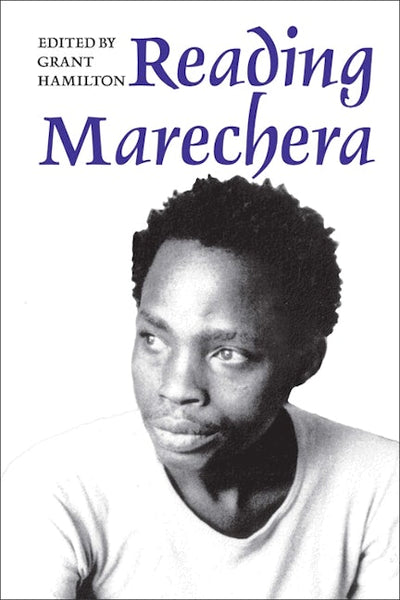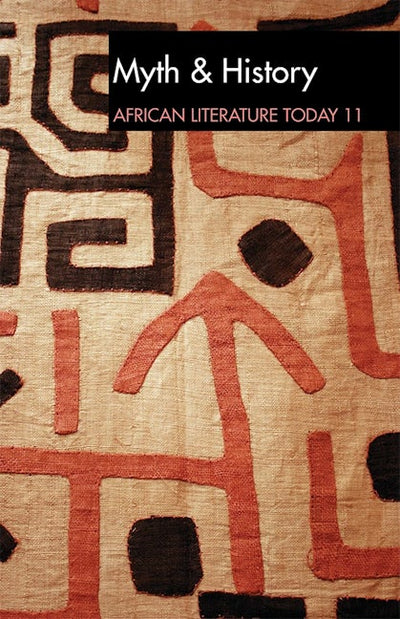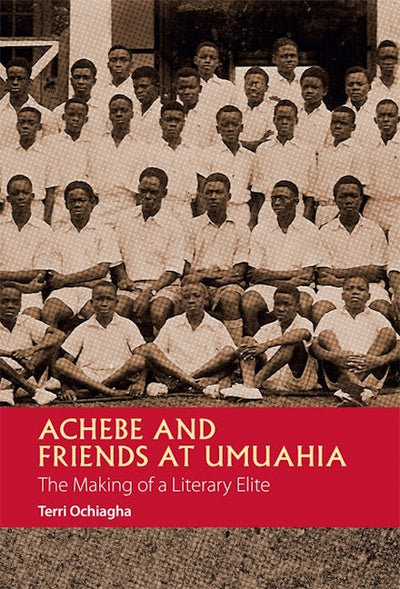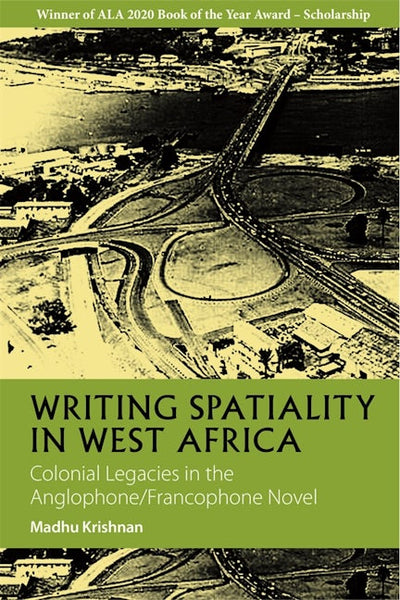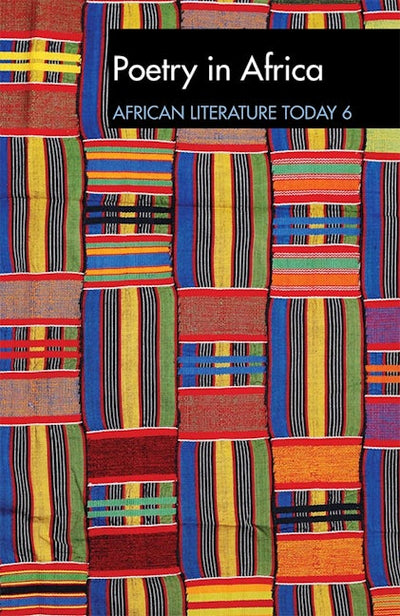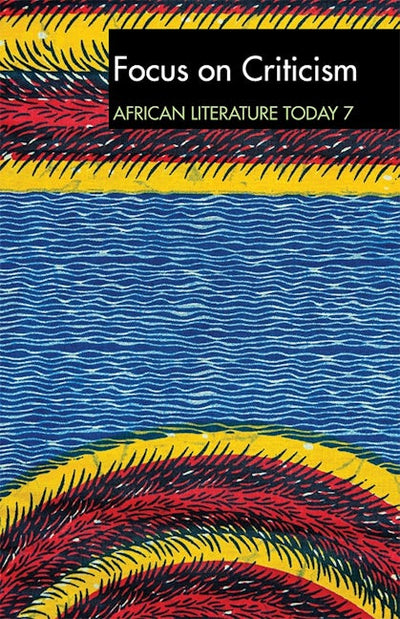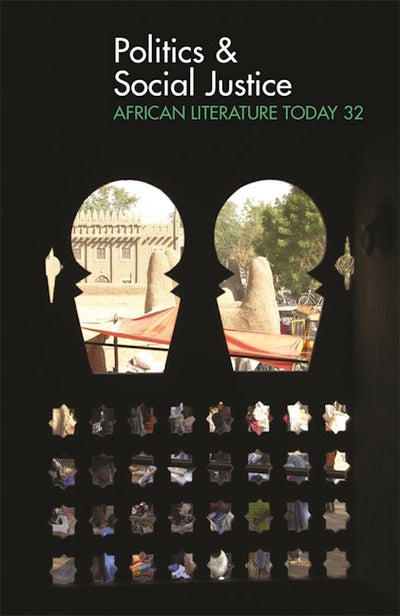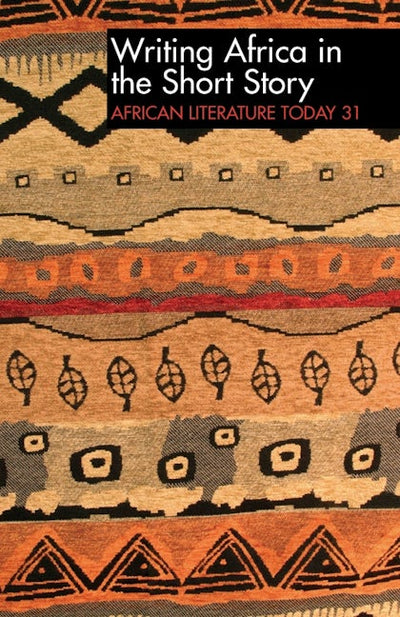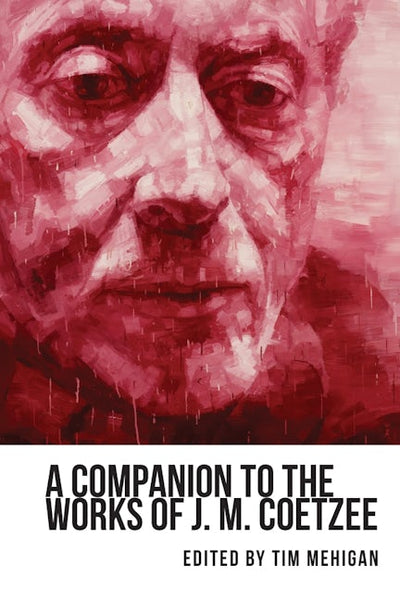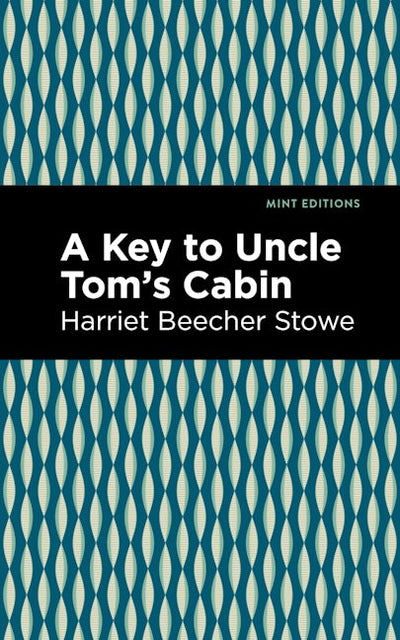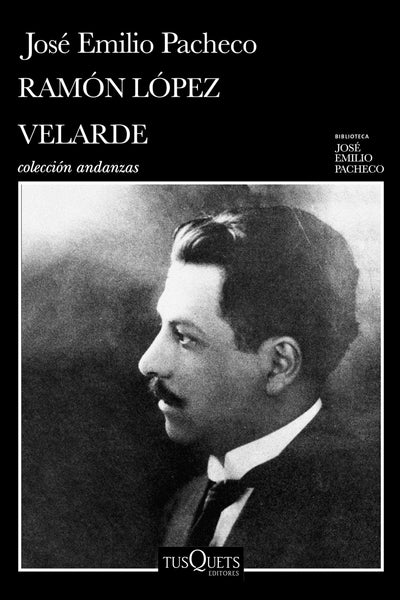-
Antiques & Collectibles
-
Architecture
-
Art
-
Bibles
-
Biography & Autobiography
-
Body, Mind & Spirit
-
Business & Economics
-
Comics & Graphic Novels
-
Computers
-
Cooking
-
Crafts & Hobbies
-
Design
-
Education
-
Family & Relationship
-
Fiction
-
Foreign Language Study
-
Games & Activities
-
Gardening
-
Health & Fitness
-
History
-
House & Home
-
Humor
-
Juvenile Fiction
-
Juvenile Nonfiction
-
Language Arts & Disciplines
-
Law
-
Literary Collections
-
Literary Criticism
-
Mathematics
-
Medical
-
Miscellaneous
-
Music
-
Nature
-
Performing Arts
-
Pets
-
Philosophy
-
Photography
-
Poetry
-
Political Science
-
Psychology
-
Reference
-
Religion
-
Self-Help
-
Science
-
Social Science
-
Sports & Recreation
-
Study Aids
-
Technology & Engineering
-
Transportation
-
Travel
-
True Crime
-
Young Adult Fiction
-
Young Adult Nonfiction
-
Antiques & Collectibles
-
Architecture
-
Art
-
Bibles
-
Biography & Autobiography
-
Body, Mind & Spirit
-
Business & Economics
-
Comics & Graphic Novels
-
Computers
-
Cooking
-
Crafts & Hobbies
-
Design
-
Education
-
Family & Relationship
-
Fiction
-
Foreign Language Study
-
Games & Activities
-
Gardening
-
Health & Fitness
-
History
-
House & Home
-
Humor
-
Juvenile Fiction
-
Juvenile Nonfiction
-
Language Arts & Disciplines
-
Law
-
Literary Collections
-
Literary Criticism
-
Mathematics
-
Medical
-
Miscellaneous
-
Music
-
Nature
-
Performing Arts
-
Pets
-
Philosophy
-
Photography
-
Poetry
-
Political Science
-
Psychology
-
Reference
-
Religion
-
Self-Help
-
Science
-
Social Science
-
Sports & Recreation
-
Study Aids
-
Technology & Engineering
-
Transportation
-
Travel
-
True Crime
-
Young Adult Fiction
-
Young Adult Nonfiction
James Baldwin Review
Regular price $37.95 Save $-37.95
James Baldwin Review
Regular price $37.95 Save $-37.95The James Baldwin Review (JBR) is an annual journal that brings together a wide array of peer-reviewed critical and creative work on the life, writings, and legacy of James Baldwin. In addition to these cutting-edge contributions, each issue contains a review of recent Baldwin scholarship and an award-winning graduate student essay. The James Baldwin Review publishes essays that invigorate scholarship on James Baldwin; catalyze explorations of the literary, political, and cultural influence of Baldwin’s writing and political activism; and deepen our understanding and appreciation of this complex and luminary figure.
It is the aim of the James Baldwin Review to provide a vibrant and multidisciplinary forum for the international community of Baldwin scholars, students, and enthusiasts.

The Racial Unfamiliar
Regular price $35.00 Save $-35.00The works of African American authors and artists are too often interpreted through the lens of authenticity. They are scrutinized for “positive” or “negative” representations of Black people and Black culture or are assumed to communicate some truth about Black identity or the “Black experience.” However, many contemporary Black artists are creating works that cannot be slotted into such categories. Their art resists interpretation in terms of conventional racial discourse; instead, they embrace opacity, uncertainty, and illegibility.
John Brooks examines a range of abstractionist, experimental, and genre-defying works by Black writers and artists that challenge how audiences perceive and imagine race. He argues that literature and visual art that exceed the confines of familiar conceptions of Black identity can upend received ideas about race and difference. Considering photography by Roy DeCarava, installation art by Kara Walker, novels by Percival Everett and Paul Beatty, drama by Suzan-Lori Parks, and poetry by Robin Coste Lewis, Brooks pinpoints a shared aesthetic sensibility. In their works, the devices that typically make race feel familiar are instead used to estrange cultural assumptions about race. Brooks contends that when artists confound expectations about racial representation, the resulting disorientation reveals the incoherence of racial ideologies. By showing how contemporary literature and art ask audiences to question what they think they know about race, The Racial Unfamiliar offers a new way to understand African American cultural production.

Antagonistic Cooperation
Regular price $30.00 Save $-30.00Winner, 2023 Columbia University Press Distinguished Book Award
Finalist, 2023 Pauli Murray Book Prize in Black Intellectual History, African American Intellectual History Society
Shortlisted, Historical Nonfiction Legacy Award, Hurston / Wright Foundation
Ralph Ellison famously characterized ensemble jazz improvisation as “antagonistic cooperation.” Both collaborative and competitive, musicians play with and against one another to create art and community. In Antagonistic Cooperation, Robert G. O’Meally shows how this idea runs throughout twentieth-century African American culture to provide a new history of Black creativity and aesthetics.
From the collages of Romare Bearden and paintings of Jean-Michel Basquiat to the fiction of Ralph Ellison and Toni Morrison to the music of Louis Armstrong and Duke Ellington, O’Meally explores how the worlds of African American jazz, art, and literature have informed one another. He argues that these artists drew on the improvisatory nature of jazz and the techniques of collage not as a way to depict a fractured or broken sense of Blackness but rather to see the Black self as beautifully layered and complex. They developed a shared set of methods and motives driven by the belief that art must involve a sense of community. O’Meally’s readings of these artists and their work emphasize how they have not only contributed to understanding of Black history and culture but also provided hope for fulfilling the broken promises of American democracy.

Shadow Archives
Regular price $35.00 Save $-35.00Recasting the history of African American literature, Shadow Archives brings to life a slew of newly discovered texts—including Claude McKay’s Amiable with Big Teeth—to tell the stories of black special collections and their struggle for institutional recognition. Jean-Christophe Cloutier offers revelatory readings of major African American writers, including McKay, Richard Wright, Ann Petry, and Ralph Ellison, and provides a nuanced view of how archival methodology, access, and the power dynamics of acquisitions shape literary history.
Shadow Archives argues that the notion of the archive is crucial to our understanding of postwar African American literary history. Cloutier combines his own experiences as a researcher and archivist with a theoretically rich account of the archive to offer a pioneering study of the importance of African American authors’ archival practices and how these shaped their writing. Given the lack of institutions dedicated to the black experience, the novel became an alternative site of historical preservation, a means to ensure both individual legacy and group survival. Such archivism manifests in the work of these authors through evolving lifecycles where documents undergo repurposing, revision, insertion, falsification, transformation, and fictionalization, sometimes across decades. An innovative interdisciplinary consideration of literary papers, Shadow Archives proposes new ways for literary scholars to engage with the archive.

Black Utopia
Regular price $26.00 Save $-26.00Within the history of African American struggle against racist oppression that often verges on dystopia, a hidden tradition has depicted a transfigured world. Daring to speculate on a future beyond white supremacy, black utopian artists and thinkers offer powerful visions of ways of being that are built on radical concepts of justice and freedom. They imagine a new black citizen who would inhabit a world that soars above all existing notions of the possible.
In Black Utopia, Alex Zamalin offers a groundbreaking examination of African American visions of social transformation and their counterutopian counterparts. Considering figures associated with racial separatism, postracialism, anticolonialism, Pan-Africanism, and Afrofuturism, he argues that the black utopian tradition continues to challenge American political thought and culture. Black Utopia spans black nationalist visions of an ideal Africa, the fiction of W. E. B. Du Bois, and Sun Ra’s cosmic mythology of alien abduction. Zamalin casts Samuel R. Delany and Octavia E. Butler as political theorists and reflects on the antiutopian challenges of George S. Schuyler and Richard Wright. Their thought proves that utopianism, rather than being politically immature or dangerous, can invigorate political imagination. Both an inspiring intellectual history and a critique of present power relations, this book suggests that, with democracy under siege across the globe, the black utopian tradition may be our best hope for combating injustice.

What Else but Love?
Regular price $32.00 Save $-32.00
New Negro, Old Left
Regular price $34.00 Save $-34.00Howard "Stretch" Johnson, a charismatic Harlemite who graduated from Cotton Club dancer to Communist Party youth leader, once claimed that in late 1930s New York "75% of black cultural figures had Party membership or maintained regular meaningful contact with the Party." He stretched the truth, but barely. In a broad-ranging, revisionary account of the extensive relationship between African-American literary culture and Communism in the 1920s and 1930s, William J. Maxwell uncovers both black literature's debt to Communism and Communism's debt to black literature—reciprocal obligations first incurred during the Harlem Renaissance.
Juxtaposing well-known and newly rediscovered works by Claude McKay, Andy Razaf, Mike Gold, Langston Hughes, Louise Thompson, Richard Wright, Zora Neale Hurston, and Nelson Algren, Maxwell maintains that the "Old," Soviet-allied Left promoted a spectrum of exchanges between black and white authors, genres, theories, and cultural institutions. Channels opened between radical Harlem and Bolshevik Moscow, between the New Negro renaissance and proletarian literature. Claude McKay's 1922-23 pilgrimage to the Soviet Union, for example, usually recalled as a lighthearted adventure in radical tourism, actually jumpstarted the Comintern's controversial nation-centered program for Afro America. Breaking from studies governed by Cold War investments and pivoting on the Great Depression, Maxwell argues that Communism's rare sustenance for African-American initiative—not a seduction of Depression-scarred innocents—brought scores of literary "New Negroes" to the Old Left.

Uptown Conversation
Regular price $37.00 Save $-37.00Jackson Pollock dancing to the music as he painted; Romare Bearden's stage and costume designs for Alvin Ailey and Dianne McIntyre; Stanley Crouch stirring his high-powered essays in a room where a drumkit stands at the center: from the perspective of the new jazz studies, jazz is not only a music to define—it is a culture. Considering musicians and filmmakers, painters and poets, the intellectual improvisations in Uptown Conversation reevaluate, reimagine, and riff on the music that has for more than a century initiated a call and response across art forms, geographies, and cultures.
Building on Robert G. O'Meally's acclaimed Jazz Cadence of American Culture, these original essays offer new insights in jazz historiography, highlighting the political stakes in telling the story of the music and evaluating its cultural import in the United States and worldwide. Articles contemplating the music's experimental wing—such as Salim Washington's meditation on Charles Mingus and the avant-garde or George Lipsitz's polemical juxtaposition of Ken Burns's documentary Jazz and Horace Tapscott's autobiography Songs of the Unsung—share the stage with revisionary takes on familiar figures in the canon: Thelonious Monk, Miles Davis, Duke Ellington, and Louis Armstrong.

Burnin' Down the House
Regular price $33.00 Save $-33.00Home is a powerful metaphor guiding the literature of African Americans throughout the twentieth century. While scholars have given considerable attention to the Great Migration and the role of the northern city as well as to the place of the South in African American literature, few have given specific notice to the site of "home." And in the twenty years since Houston A. Baker Jr.'s Blues, Ideology, and Afro-American Literature appeared, no one has offered a substantial challenge to his reading of the blues matrix.
Burnin' Down the House creates new and sophisticated possibilities for a critical engagement with African American literature by presenting both a meaningful critique of the blues matrix and a careful examination of the place of home in five classic novels: Native Son by Richard Wright, Invisible Man by Ralph Ellison, The Bluest Eye and Song of Solomon by Toni Morrison, and Corregidora by Gayl Jones.

Betrayal
Regular price $30.00 Save $-30.00Houston A. Baker Jr. condemns those black intellectuals who, he believes, have turned their backs on the tradition of racial activism in America. These individuals choose personal gain over the interests of the black majority, whether they are espousing neoconservative positions that distort the contours of contemporary social and political dynamics or abandoning race as an important issue in the study of American literature and culture. Most important, they do a disservice to the legacy of W. E. B. Du Bois, Martin Luther King Jr., and others who have fought for black rights.
In the literature, speeches, and academic and public behavior of some black intellectuals in the past quarter century, Baker identifies a "hungry generation" eager for power, respect, and money. Baker critiques his own impoverished childhood in the "Little Africa" section of Louisville, Kentucky, to understand the shaping of this new public figure. He also revisits classical sites of African American literary and historical criticism and critique. Baker devotes chapters to the writing and thought of such black academic superstars as Cornel West, Michael Eric Dyson, and Henry Louis Gates Jr.; Hoover Institution senior fellow Shelby Steele; Yale law professor Stephen Carter; and Manhattan Institute fellow John McWhorter. His provocative investigation into their disingenuous posturing exposes what Baker deems a tragic betrayal of King's legacy.
Baker concludes with a discussion of American myth and the role of the U.S. prison-industrial complex in the "disappearing" of blacks. Baker claims King would have criticized these black intellectuals for not persistently raising their voices against a private prison system that incarcerates so many men and women of color. To remedy this situation, Baker urges black intellectuals to forge both sacred and secular connections with local communities and rededicate themselves to social responsibility. As he sees it, the mission of the black intellectual today is not to do great things but to do specific, racially based work that is in the interest of the black majority.

The Racial Discourses of Life Philosophy
Regular price $32.00 Save $-32.00In the early twentieth century, the life philosophy of Henri Bergson summoned the élan vital, or vital force, as the source of creative evolution. Bergson also appealed to intuition, which focused on experience rather than discursive thought and scientific cognition. Particularly influential for the literary and political Négritude movement of the 1930s, which opposed French colonialism, Bergson's life philosophy formed an appealing alternative to Western modernity, decried as "mechanical," and set the stage for later developments in postcolonial theory and vitalist discourse.
Revisiting narratives on life that were produced in this age of machinery and war, Donna V. Jones shows how Bergson, Nietzsche, and the poets Leopold Senghor and Aimé Césaire fashioned the concept of life into a central aesthetic and metaphysical category while also implicating it in discourses on race and nation. Jones argues that twentieth-century vitalism cannot be understood separately from these racial and anti-Semitic discussions. She also shows that some dominant models of emancipation within black thought become intelligible only when in dialogue with the vitalist tradition. Jones's study strikes at the core of contemporary critical theory, which integrates these older discourses into larger critical frameworks, and she traces the ways in which vitalism continues to draw from and contribute to its making.

The Other Blacklist
Regular price $27.00 Save $-27.00Mary Helen Washington recovers the vital role of 1950s leftist politics in the works and lives of modern African American writers and artists. While most histories of McCarthyism focus on the devastation of the blacklist and the intersection of leftist politics and American culture, few include the activities of radical writers and artists from the Black Popular Front. Washington's work incorporates these black intellectuals back into our understanding of mid-twentieth-century African American literature and art and expands our understanding of the creative ferment energizing all of America during this period.
Mary Helen Washington reads four representative writers—Lloyd Brown, Frank London Brown, Alice Childress, and Gwendolyn Brooks—and surveys the work of the visual artist Charles White. She traces resonances of leftist ideas and activism in their artistic achievements and follows their balanced critique of the mainstream liberal and conservative political and literary spheres. Her study recounts the targeting of African American as well as white writers during the McCarthy era, reconstructs the events of the 1959 Black Writers' Conference in New York, and argues for the ongoing influence of the Black Popular Front decades after it folded. Defining the contours of a distinctly black modernism and its far-ranging radicalization of American politics and culture, Washington fundamentally reorients scholarship on African American and Cold War literature and life.

Plagiarama!
Regular price $28.00 Save $-28.00William Wells Brown (1814–1884) was a vocal abolitionist, a frequent antagonist of Frederick Douglass, and the author of Clotel, the first known novel by an African American. He was also an extensive plagiarist, copying at least 87,000 words from close to 300 texts. In this critical study of Brown's work and legacy, Geoffrey Sanborn offers a novel reading of the writer's plagiarism, arguing the act was a means of capitalizing on the energies of mass-cultural entertainments popularized by showmen such as P. T. Barnum. By creating the textual equivalent of a variety show, Brown animated antislavery discourse and evoked the prospect of a pleasurably integrated world.
Brown's key dramatic protagonists were the "spirit of capitalization"—the unscrupulous double of Max Weber's spirit of capitalism—and the "beautiful slave girl," a light-skinned African American woman on the verge of sale and rape. Brown's unsettling portrayal of these figures unfolded within a riotous patchwork of second-hand texts, upset convention, and provoked the imagination. Could a slippery upstart lay the groundwork for a genuinely interracial society? Could the fetishized image of a not-yet-sold woman hold open the possibility of other destinies? Sanborn's analysis of pastiche and plagiarism adds new depth to the study of nineteenth-century culture and the history of African American literature, suggesting modes of African American writing that extend beyond narratives of necessity and purpose, characterized by the works of Frederick Douglass and others.

The Trouble with Post-Blackness
Regular price $27.00 Save $-27.00An America in which the color of one's skin no longer matters would be unprecedented. With the election of President Barack Obama in 2008, that future suddenly seemed possible. Obama's rise reflects a nation of fluid populations and fortunes, a society in which a biracial individual could be embraced as a leader by all. Yet complicating this vision are shifting demographics, rapid redefinitions of race, and the instant invention of brands, trends, and identities that determine how we think about ourselves and the place of others.
This collection of original essays confronts the premise, advanced by black intellectuals, that the Obama administration marked the start of a "post-racial" era in the United States. While the "transcendent" and post-racial black elite declare victory over America's longstanding codes of racial exclusion and racist violence, their evidence relies largely on their own salaries and celebrity. These essays strike at the certainty of those who insist that life, liberty, and the pursuit of happiness are now independent of skin color and race in America. They argue, signify, and testify that "post-blackness" is a problematic mythology masquerading as fact—a dangerous new "race science" motivated by black transcendentalist individualism. Through rigorous analysis, these essays expose the idea of a post-racial nation as a pleasurable entitlement for a black elite, enabling them to reject the ethics and urgency of improving the well-being of the black majority.

Handbuch Literatur & Emotionen
Regular price $34.99 Save $-34.99Ohne Emotionen lässt sich Literatur weder schreiben noch lesen. Anders als die aktuelle Rede vom ‚emotional turn‘ suggeriert, steht das Nachdenken über Dichtung schon seit der Antike im Zeichen einer Reflexion über Pathos, Gefühl etc. Dieses Handbuch liefert eine zusammenfassende Darstellung, die diese lange Reflexionstradition in Bezug zu theoretischen Ansätzen des 20. und 21. Jahrhunderts setzt und an konkreten Fallstudien anschaulich macht.

ALT 33 Children's Literature & Story-telling
Regular price $29.99 Save $-29.99Africa's encounter with the West and its implications and consequences remain far-reaching and enduring in the craft and thrust of its creative writers. The contributors to ALT 33 analyse the connections between traditional stories and myths that have been told to children, as well as the work of contemporary creative writers who are writing for children in order that they understand this complex history. Some of these writers are developing traditional myths, folk tales, and legends and are writing them in new forms, while others focus on the encounter with the West that has dominated much modern African literature for adults.
The previous neglect of the cultural significance, study, criticism and teaching of children's literature is addressed in this volume: How can the successes and/or failures of stories and story-telling for children in Africa be measured? Are there models to be followed and whatmakes them models? What is the relationship between the text and the illustration of children's books? What should guide the reader or critic of children's literature coming out of Africa - globalism, transculturality or internalregionalism? What problems confront teachers, students, publishers and promoters of children's books in Africa?
Ernest Emenyonu is Professor of Africana Studies at the University of Michigan-Flint, USA; the editorial board is composed of scholars from US, UK and African universities.
Reviews Editor: Obi Nwakanma
HEBN: Nigeria

Death and Compassion
Regular price $30.00 Save $-30.00Traces the literary history of the elephant, and its role in South Africa's cultural imaginary
Elephants are in dire straits – again. They were virtually extirpated from much of Africa by European hunters in the eighteenth and nineteenth centuries, but their numbers resurged for a while in the heyday of late-colonial conservation efforts in the twentieth. Now, according to one estimate, an elephant is being killed every 15 minutes. This is at the same time that the reasons for being especially compassionate and protective towards elephants are now so well-known that they have become almost a cliché: their high intelligence, rich emotional lives including a capacity for mourning, caring matriarchal societal structures, that strangely charismatic grace. Saving elephants is one of the iconic conservation struggles of our time.
As a society we must aspire to understand how and why people develop compassion – or fail to do so – and what stories we tell ourselves about animals that reveal the relationship between ourselves and animals. This book is the first study to probe the primary features, and possible effects, of some major literary genres as they pertain to elephants south of the Zambezi over three centuries: indigenous forms, early European travelogues, hunting accounts, novels, game ranger memoirs, scientists’ accounts, and poems. It examines what these literatures imply about the various and diverse attitudes towards elephants, about who shows compassion towards them, in what ways and why. It is the story of a developing contestation between death and compassion, between those who kill and those who love and protect.

Humanitarian Fictions
Regular price $35.00 Save $-35.00Humanitarianism has a narrative problem. Far too often, aid to Africa is envisioned through a tale of Western heroes saving African sufferers. While labeling white savior narratives has become a familiar gesture, it doesn’t tell us much about the story as story. Humanitarian Fictions aims to understand the workings of humanitarian literature, as they engage with and critique narratives of Africa.
Overlapping with but distinct from human rights, humanitarianism centers on a relationship of assistance, focusing less on rights than on needs, less on legal frameworks than moral ones, less on the problem than on the nonstate solution. Tracing the white savior narrative back to religious missionaries of the nineteenth century, Humanitarian Fictions reveals the influence of religious thought on seemingly secular institutions and uncovers a spiritual, collectivist streak in the discourse of humanity.
Because the humanitarian model of care transcends the boundaries of the state, and its networks touch much of the globe, Humanitarian Fictions redraws the boundaries of literary classification based on a shared problem space rather than a shared national space. The book maps a transnational vein of Anglophone literature about Africa that features missionaries, humanitarians, and their so-called beneficiaries. Putting humanitarian thought in conversation with postcolonial critique, this book brings together African, British, and U.S. writers typically read within separate traditions. Paustian shows how the novel—with its profound sensitivity to narrative—can enrich the critique of white saviorism while also imagining alternatives that give African agency its due.

African Literature in the Digital Age
Regular price $29.99 Save $-29.99The digital space provides a new avenue to move literature beyond the restrictions of book publishing on the continent. Arguing that writers are putting their work on cyberspace because communities are emerging from this space, and because increasing numbers of Africans use the internet as part of their day-to-day engagement with their societies and the world, Shola Adenekan explores this transformative development in Nigeria and Kenya, both significant countries in African literature and two of the continent's largest digital technology hubs.
Queer Kenyans and Nigerians find new avenues for their work online where print publishers are refusing to publish short stories and poems on same-sex desire. Binyavanga Wainaina's rise to critical acclaim arguably started on the literary blog Generator 21. Chimamanda Ngozi Adichie's literary celebrity partly relies on her prolific use of social media to tell the story of powerful Nigerian women. With further examples from the development of literature across the continent, this innovative book sheds new light on narratives about digital Africa. It will also be the first major work to provide a trajectory of class consciousness in Kenyan and Nigerian writing. Through this analysis, the book articulates the difference in attitudes towards queerness, sexuality, and hetero-normativity among successive generations of writers.
Funded by the Knowledge Unlatched Select 2023 collection, this title is available as an Open Access ebook under the Creative Commons License: CC BY NC

Ngugi
Regular price $36.95 Save $-36.95This collection of essays reflects on the life and work of Ngugi wa Thiong'o, who celebrated his 80th birthday in 2018. Drawing from a wide range of contributors, including writers, critics, publishers and activists, the volume traces the emergence of Ngugi as a novelist in the early 1960s, his contribution to the African culture of letters at its moment of inception, and his global artistic life in the twenty-first century. Here we have both personal andcritical reflections on the different phases of the writer's life: there are poems from friends and admirers, commentaries from his co-workers in public theatre in Kenya in the 1970s and 1980s, and from his political associates in the fight for democracy, and contributions on his role as an intellectual of decolonization, as well as his experiences in the global art world. Included also are essays on Ngugi's role outside the academy, in the world of education, community theatre, and activism. In addition to tributes from other authors who were influenced by Ngugi, the collection contains hitherto unknown materials that are appearing in English for the first time. Both a celebration of the writer, and a rethinking of his legacy, this book brings together three generations of Ngugi readers. We have memories and recollections from the people he worked with closely in the 1960s, the students that he taught atthe University of Nairobi in the 1970s, his political associates during his exile in the 1980s, and the people who worked with him as he embarked on a new life and career in the United States in the 1990s. First-hand accounts reveal how Ngugi's life and work have intersected, and the multiple forces that have converged to make him one of the greatest writers to come out of Africa in the twentieth century.
Simon Gikandi is Robert Schirmer Professor of English, Princeton University. He is President of the MLA and was editor of its journal PMLA, from 2011-2016.
Ndirangu Wachanga is Professor of Media Studies and Information Science at the University of Wisconsin. He is also the authorized documentary biographer of Professors Ali A. Mazrui, Ngugi wa Thiong'o and Micere Mugo.

A Companion to Chimamanda Ngozi Adichie
Regular price $36.95 Save $-36.95Easily the leading and most engaging voice of her era and generation, Chimamanda Ngozi Adichie has bridged gaps and introduced new motifs and narrative styles which have energized contemporary African fiction since her first novel, Purple Hibiscus (2003). With Half of a Yellow Sun (2007) and The Thing Around Your Neck - Short Stories (2009), she established herself as a preeminent story-teller. Americanah (2013), with ingeniouscraftsmanship addresses the sensitive themes of passionate love, independence, freedom and moral responsibility with extravagant and versatile narrative innovations.
Through her writings, she has made herself relevant topeople of all ages - across racial and linguistic boundaries. Her talks, blogs, musings on social media, essays and commentaries, workshop-mentoring for budding young writers, lecture circuit discourses, all enrich her imaginativecreativity as they expand and define her mission as a writer. "We Should All be Feminists" she proclaimed in an essay, giving feminism a "tweak and twist" and suggesting new outlooks in literary theory.
Her contributionsto African, Diasporic and World literatures deserve serious analyses, commentaries and interpretations, and this Companion to her work critically examines her creative outputs from her art and ideology, from feminism to war, to matters of myth and perception, and the challenges of multicultural existence and complex human identities.

ALT 12 New Writing, New Approaches: African Literature Today
Regular price $29.99 Save $-29.99In his Editorial to African Literature Today 12, first published in 1982, Eldred Jones laments the death of Camara Laye and gives tribute to him as one of the pioneers of African literature. The volume celebrates new writers whose works "have not received much critical attention either because they are relatively new, or because not being what might be described as mainstream they may unintentionally, perhaps, have been damned with faint praise or neglect." There are contributions on the works of Gabriel Okara, Robert Serumaga, Hamidou Kane and John Munonye, and emerging as significant new voices are playwrights Femi Osofisan and Ola Rotimi, and feminist writer Mariama Bâ.

ALT 5 The Novel in Africa: African Literature Today
Regular price $29.99 Save $-29.99Originally published in 1971, this was the first volume in the series to focus on a specific theme, in this case the novel, but continues the format of including contributions from both writers and critics. There are articles on:Equiano, Onuora Nzekwu, T.M. Aluko, Ngugi, Sarif Easmon, Chinua Achebe and Wole Soyinka. The volume also includes a contribution from Ernest Emenyonu asking of African Literature "What does it take to be its critic" plus reviews of Sembene Ousmane's newly published God's Bits of Wood, Mbella Sonne Dipoko's Because of Women, T.M. Aluko's Chief, The Honourable Minister and Flora Nwapa's Idu.

Written under the Skin
Regular price $24.99 Save $-24.99The author uses the image of blood under the skin as a way of understanding cultural and literary forms in contemporary South Africa. Chapters deal with the bloodied histories of apartheid and blood as trope for talking about change.
In this book the author argues that a younger generation of South Africans is developing important and innovative ways of understanding South African pasts, and that challenge the narratives that have over the last decades been informed by notions of forgiveness and reconciliation. The author uses the image of history-rich blood to explore these approaches to intergenerational memory. Blood under the skin is a carrier of embodied and gendered histories andusing this image, the chapters revisit older archives, as well as analyse contemporary South African cultural and literary forms.
The emphasis on blood challenges the privileged status skin has had as explanatory category inthinking about identity, and instead emphasises intergenerational transfer and continuity. The argument is that a younger generation is disputing and debating the terms through which to understand contemporary South Africa, as well as for interpreting the legacies of the past that remain under the visible layer of skin. The chapters each concern blood: Mandela's prison cell as laboratory for producing bloodless freedom; the kinship relations created and resisted in accounts of Eugene de Kock in prison; Ruth First's concern with information leaks in her accounts of her time in prison; the first human-to-human heart transplant and its relation to racialised attempts to salvage whiteidentity; the #Fallist moment; Abantu book festival; and activist scholarship and creative art works that use blood as trope for thinking about change and continuity.
Southern Africa (South Africa, Namibia, Lesotho, Zimbabwe and Swaziland): Wits University Press

They Called You Dambudzo
Regular price $36.95 Save $-36.95How shall I tell our story? I hear your voice ringing in mine. I struggle to disentangle a dense tapestry of memories. One thread will be caught up in another. Early images will embrace later ones. My gaze will often be filtered through your eyes, your poems. In the end I will not always be able to tell the original from the reflection. Just as you wrote, Time's fingers on the piano / play emotion into motion / the dancers in the looking glass never recognise us as their originals.
This book is a memoir with a 'double heartbeat'. At its centre is the author's relationship with the late Zimbabwean writer, Dambudzo Marechera, whose award-winning book The House of Hunger marked him as a powerful, disruptive, perhaps prophetic voice in African literature. Flora Veit-Wild is internationally recognised for her significant contribution to preserving Marechera's legacy. What is less known about Marechera and Veit-Wild is that they had an intense, personal and sexual relationship. This memoir explores this: the couple's first encounter in 1983, amidst the euphoria of the newly independent Zimbabwe; the tumultuous months when the homeless writer moved in with his lover and her family; the bouts of creativity once he had his own flat followed by feelings of abandonment; the increasing despair about a love affair that could not stand up against reality; and the illness of the writer and his death of HIV related pneumonia in August 1987. What follows are the struggles Flora went through once Dambudzo had died. On the one hand she became the custodian of his life and work, on the other she had to live with her own HIV infection and the ensuing threats to her health.
Jacana: Southern Africa

In the Name of the Mother
Regular price $29.99 Save $-29.99Renowned worldwide, as novelist and dramatist, Ngugi wa Thiongo's contributions to the body of critical writing on African literature, politics and society have been highly significant. His best known critical work is Decolonising the Mind, which since publication in 1986 has profoundly influenced other writers, critics, scholars and students.
These latest essays reflect Ngugi's continuing interests and enthusiasms. His choice of writers is original. He makes us look again at their novels to address his lifelong concerns with the ways to independence, the meanings of colonialism and the takeover by neo-colonialism, and the functions of literature in political as well asliterary terms. They will appeal not only to his international band of supporters. They will also introduce his views to young people discovering African and Caribbean literature.
Ngugi wa Thiong'o is Distinguished Professor of English and Comparative Literature at the University of California, Irvine. Ngugi is renowned for his essays, including the seminal Decolonising the Mind (James Currey 1986); his plays, which led to his detentionin Kenya; his novels - the most recent works being The Wizard of the Crow (2007, translated into English from Gikuyu) and his memoirs Dreams in a Time of War and In the House of the Interpreter
East Africa [Kenya, Tanzania, Uganda and Rwanda]: EAEP

At the Crossroads
Regular price $36.95 Save $-36.95'Honorable Mention' for the ALA First Book Award - Scholarship 2021
A path-breaking contribution to the critical literature on African travel writing.
Throughout the twentieth century, Nigerians have been writing about their travels within Nigeria using a variety of media and forms, from serialised newspaper travelogues to personal diaries, autobiographies and online narratives.These works offer important insights into how Nigerians have represented Nigeria to itself and to the world.
This is the first book to examine the production of Nigerian travel narratives about Nigeria in the century from colonisation to independence. Rebecca Jones argues that we can read these texts both as the products of a local Nigerian print culture, and through their articulations with global travel writing traditions. Focusing on travel writing published from 1914 to 2014 in the Yoruba-speaking region of southwestern Nigeria, home to a well-established and prolific writing and print culture in both Yoruba and English, this cultural history of Nigerian travel comprisesclose readings of these works, and argues that the production of travel writing in the region can be read not simply as a foreign import, but as a cluster of genres with a cohesive local history.
Writers discussed include Samuel Ajayi Crowther, I.B. Thomas, E.A. Akintan, Isaac Delano, D.O. Fagunwa, Amos Tutuola, Ben Okri, Babatunde Shadeko, Damilola Ajenifuja, Chibuzor Mirian Azubuike, Pelu Awofeso, Lape Soetan, Teju Cole, Adewale Maja-Pearce, Noo Saro-Wiwa, and the Invisible Borders collective.
Nigeria: Premium Times Books

Reading Marechera
Regular price $29.99 Save $-29.99Considered one of Africa's most innovative and subversive writers, the Zimbabwean novelist, poet, playwright and essayist Dambudzo Marechera is read today as a significant voice in contemporary world literature. Marechera wrote ceaselessly against the status quo, against unqualified ideas, against expectation. He was an intellectual outsider who found comfort only in the company of other free-thinking writers - Shelley, Bakhtin, Apuleius, Fanon, Dostoyevsky, Tutuola. It is this universe of literary thought that one can see written into the fiction of Marechera that this collection of essays sets out to interrogate.
In this important and timely contribution to African literarystudies, Grant Hamilton has gathered together essays of world-renowned, established, and young academics from Africa, Europe, Asia and Australia in order to discuss the important literary and philosophical influences that course through Marechera's prose, poetry and drama. From classical allusion to the political philosophy of anarchism, this collection of new research on Marechera's work makes clear the extraordinary breadth and quality of thought that Marechera brought to his writing.
Grant Hamilton is Assistant Professor of English Literature at the Chinese University of Hong Kong. He is the author of On Representation: Deleuze and Coetzee on the Colonized Subject (Rodopi, 2011), as well as a number of articles on contemporary African, postcolonial, and world literatures. He is currently working on his second book, Deleuze and African Literature.

ALT 11 Myth & History: African Literature Today
Regular price $29.99 Save $-29.99This volume, first published in 1980, provides an overview of the way myth and history have influenced both the literature of Africa and individual writers. Isidore Okpewho, Solomon O. Iyasere and Mazisi Kunene contribute here onmyth, oral tradition and African cosmological systems. Armah's vision of history is examined both in the way that it appears in his novels and in comparison with Ouologuem and Soyinka; also examined are Elechi Amadi's view of thegods, Achebe's use of myth in Arrow of God and the inward journey of Tutuola's Palm-Wine Drinkard. There are views across the Atlantic of the way the Middle Passage resonates in the work of Edouard Glissant and in the work of a number of writers from West Africa.

Achebe and Friends at Umuahia
Regular price $29.99 Save $-29.99The author meticulously contextualises the experiences of Achebe and his peers as students at Government College Umuahia and argues for a re-assessment of this influential group of Nigerian writers in relation to the literary culture fostered by the school and its tutors.
Maps the literary awakening of the young intellectuals who became known as Nigeria's "first-generation" of postcolonial writers: Chinua Achebe, Elechi Amadi, Chike Momah, Christopher Okigbo, Chukwuemeka Ike, Gabriel Okara, Ken Saro-Wiwa and I.C. Aniebo. The author provides fresh perspectives on Postcolonial and World literary processes, colonial education in British Africa, literary representations of colonialism and Chinua Achebe's seminal position in African literature. She demonstrates how each of the writers used this very particular education to shape their own visions of the world and examines the implications for African literature as a whole.
Supplementary material is available online of some of the original sources. See: http://boybrew.co/9781847011091_2
Terri Ochiagha is a Teaching Fellow in the History of Modern Africa at King's College, London and a Honorary Research Fellowat the Department of African Studies and Anthropology at the University of Birmingham. She was previously a British Academy Newton Fellow at the University of Sussex.

Writing Spatiality in West Africa
Regular price $29.99 Save $-29.99Examines the ways in which space and spatial structures have been constituted, contested and re-imagined in Francophone and Anglophone West African literature since the early 1950s.
From the "imaginative geographies" of conquest identified by Edward Said to the very real and material institution of territorial borders, regions and geographical amalgamations, the control, administration and integration of space are known to have played a central and essential role in the creation of contemporary "Africa". Space continues to be a site of conflict, from separatist struggles to the distribution of resources to the continued absorption ofAfrican territories into the uneven geographies of global capitalism.
In this book, Madhu Krishnan examines the ways in which the anxieties and conflicts engendered by these phenomena are registered in a broad set of literarytexts from British and French West Africa. By placing these novels in dialogue with a range of archival material such as territorial planning documents, legislative papers, records of liberation movements and development projects, this book reveals the submerged articulations between spatial planning and literary expression, generating new readings of canonical West African texts as well as analyses of otherwise under-researched material.

ALT 6 Poetry in Africa: African Literature Today
Regular price $29.99 Save $-29.99First published in 1973, this volume of the series includes a tribute from the Editor to the poet Christopher Okigbo who died fighting in the Biafran War in 1967, and two articles on his poetry. Also discussed are Leopold Senghor,Dennis Brutus, Wole Soyinka, Lenrie Peters and Ferdinand Oyono. The contributions analyse East African poetry, French Algerian poetry, Zulu poetry, and "Rara" chants in Yoruba oral poetry. Donatus I. Nwoga writes a general article on modern African poetry. The new books reviewed include Mazisi Kunene's Zulu Poems and Okot p'Bitek's Two Songs: "Song of Prisoner" and "Song of Malaya" and Taban lo Liyong's Another Nigger Dead.

ALT 7 Focus on Criticism: African Literature Today
Regular price $29.99 Save $-29.99First published in 1975, this volume of the series continues in more depth the debate on the role of critics and the purpose of criticism. As Eldred Jones reminds the reader in his Editorial: "African Literature Today has always aimed to be a forum for discussion ... Not surprisingly some opinions have provoked strong reactions. Indeed where there is time reactions are deliberately sought so that differing opinions can appear close to each other....African Literature Today is happy to serve as the threshing floor."
The lively exchanges on who is best placed to judge African literature and how best to teach it continue both in responding articles and in the Comments section of the volume. Eldred Jones again embraces this debate and is reminded of the Igbo proverb: "The world is like a mask dancing; if you want to see it well you must not stand in one place."

ALT 32 Politics & Social Justice: African Literature Today
Regular price $29.99 Save $-29.99In 1965, Chinua Achebe, in his classic essay "The Novelist as Teacher", declared that the "African past - with all its imperfections - was not one long night of savagery from which the early Europeans acting on God's behalf, delivered them." That assertion included a still reverberating sentiment shared by many of the first generation of African writers that it is possible to reclaim that distorted past creatively in order to show and understand "where andwhen the rain started beating Africa".
Many genres and forms of literary and cultural production have recalled and recorded and reconfigured that past - many projecting a new confident African future defined by self-determination. The spectrum of that complex engagement, which encompasses critical issues in politics and social justice, provides the basis of this volume, which concludes with tributes to the life and works of Kofi Awoonor.
Articles on:
Binyavanga Wainaina + Ben Okri & Nationhood + J.M. Coetzee & the Philosophy of Justice + Isidore Okpewho & "Manhood" + Ngugi's Matigari & the Postcolonial Nation + Politics & Women in Irene Salami's MoreThan Dancing + Ayi Kwei Armah's The Resolutionaries
Ernest Emenyonu is Professor of Africana Studies at the University of Michigan-Flint, USA; the editorial board is composed of scholars from US, UK and African universities
Nigeria: HEBN

ALT 31 Writing Africa in the Short Story: African Literature Today
Regular price $29.99 Save $-29.99African writers have, much more than the critics, recognized the beauty and potency of the short story. Always the least studied in African literature classrooms and the most critically overlooked genre in African literature today, the African short story is now given the attention it deserves. Contributors here take a close look at the African short story to re-define its own peculiar pedigree, chart its trajectory, critique its present state and examineits creative possibilities. They examine how the short story and the novel complement each other, or exist in contradistinction, within the context of culture and politics, history and public memory, legends, myths and folklore.
Ernest Emenyonu is Professor of Africana Studies at the University of Michigan-Flint, USA; the editorial board is composed of scholars from US, UK and African universities
Nigeria: HEBN

A Companion to the Works of J. M. Coetzee
Regular price $36.95 Save $-36.95J. M. Coetzee is perhaps the most critically acclaimed bestselling author of imaginative fiction writing in English today. He received the Nobel Prize for Literature in 2003 and is the first writer to have been awarded two BookerPrizes. The present volume makes critical views of this important writer accessible to the general reader as well as the scholar, discussing Coetzee's main works in chronological order and introducing the dominant themes in the academic discussion of his oeuvre.
The volume highlights Coetzee's exceptionally nuanced approach to writing as both an exacting craft and a challenging moral-ethical undertaking. It discusses Coetzee's complex relation to apartheid and post-apartheid South Africa, the land of his birth, and evaluates his complicated responses to the literary canon. Coetzee emerges as both a modernist and a highly self-aware postmodernist - a champion of the truths of aliterary enterprise conducted unrelentingly in the mode of self-confession.
Contributors: Chris Ackerley, Derek Attridge, Carrol Clarkson, Simone Drichel, Johan Geertsema, David James, Michelle Kelly, Sue Kossew, MikeMarais, James Meffan, Tim Mehigan, Chris Prentice, Engelhard Weigl, Kim L. Worthington.
Tim Mehigan is Professor of Languages in the Department of Languages and Cultures at the University of Otago, New Zealand and Honorary Professor in the Department of Languages and Comparative Cultural Studies at the University of Queensland, Australia.

Encountering Disgrace
Regular price $39.95 Save $-39.95Ever since it was first published in 1999, Nobel laureate J. M. Coetzee's novel Disgrace has provoked controversy. Set in post-apartheid South Africa, it follows Prof. David Lurie as he encounters disgrace through his sexual exploitation of a student and then through the shocking gang-rape of his only daughter. The novel's uncompromising portrayal of the "new" South Africa outraged many, who found the book regressive, even racist. It also challengedreaders worldwide to confront its hard questions. This first book of essays devoted to the novel ambitiously brings together criticism and pedagogy. The ten critical essays and eight essays on teaching Disgrace grapple with the ethical issues the novel so provocatively raises: rape, gender, race, animal rights. Disgrace is widely taught in colleges and universities and read in book clubs; the debates it has given rise to will take on fresh life with the release of the upcoming film starring John Malkovich. Unusually, the eighteen contributors to the collection are all faculty members or graduates of the same institution, the Johnston Center for Integrative Studies atthe University of Redlands, and have worked together closely in crafting their essays over the past two years. The volume will be exceptionally useful to teachers of literature, philosophy, and South African culture, to book clubleaders, and to all readers of Coetzee.
Contributors: Nancy Best, James Boobar, Bradley Butterfield, Jane Creighton, Matthew Gray, Pat Harrigan, Gary Hawkins, Rabbi Patricia Karlin-Neumann, Daniel Kiefer, Bill McDonald, Michael G. McDunnah, Kim Middleton, Kevin O'Neill, Raymond Obstfeld, Kathy Ogren, Kenneth Reinhard, Sandra D. Shattuck, Patricia Casey Sutcliffe, Julie Townsend.
Bill McDonald is Emeritus Professor of English at the University of Redlands, Redlands, California.

ALT 14 Insiders & Outsiders: African Literature Today
Regular price $29.99 Save $-29.99This volume, first published in 1984, studies the attraction of Africa for non-African writers and the widespread and differing outside influences on African writers. This relationship raises complex problems such as which language to write in, and the representation or misrepresentation of the continent. Kole Omotoso gives a trans-Saharan view of Africa, Funso Aiyejina a West Indian perspective highlighting the work of George Lamming and Denis Williams, and Katherine Frank examines the relevance of feminist criticism to the African novel. Other contributors compare and contrast the works of European, American, Caribbean and African writers: Graham Greene and Dadié; Soyinka and Beckett; Laye, Lamming and Wright; Camus and Césaire; Yeats and J.P. Clark; Equiano and Defoe; Ernest Gaines and Oyono.

ALT 1-4: African Literature Today
Regular price $36.95 Save $-36.95The intention of the African Literature Today series [ALT] was, and still is, to encourage African writing in any language, whether of fiction, poetry or plays, and also to encourage its criticism. The critic's role, according toEldred Durosimi Jones in his 1968 Introduction to ALT 1, is to make the work accessible to a wider readership and to help establish literary standards for African literature: "The more permissive the publisher's policy is,the more necessary becomes the function of the critic."
This book combines the first 4 volumes in the series, which had been published as single volumes between 1968 and 1970, then combined into one volume in 1972. It includes Bernth Lindfors' essay "The palm wine with which Achebe's words are eaten", plus early reviews of Elechi Amadi's The Concubine, Aimé Césaire's Une Saison au Congo, Flora Nwapa's Efuru and Ngugi's A Grainof Wheat.

ALT 9 Africa, America & the Caribbean: African Literature Today
Regular price $29.99 Save $-29.99This volume, first published in 1978, looks at the fascinating literary links of the African diaspora in Harlem, Cuba and Haiti. Eldred Jones outlines in his Editorial the impact of the pride in connections with an African past as"one of the great transformations of modern times". The impact on writing moved in all directions and comparisons in this volume are made between Wole Soyinka and Leroi Jones, and between African and Irish Nationalist writing. Among the contributions are articles on the American background to Ayi Kwei Armah's Why Are We So Blest?, the African elements of Cuban literature, and an analysis of the early works and later crime fiction of Chester Himes.The Reviews include Kadiatu Sesay on Ekwensi and Okpwewho, Maryse Condé on Sembene Ousmane's Xala and Eustace Palmer on Meja Mwangi's Going Down River Road and Nuruddin Farah's Naked Needle.

Decolonising the Mind
Regular price $29.99 Save $-29.99'The language of literature', Ngũgĩ writes, 'cannot be discussed meaningfully outside the context of those social forces which have made it both an issue demanding our attention, and a problem calling for a resolution.' First published in 1986, Decolonising the Mind is one of Ngũgĩ's best-known and most-cited non-fiction publications, helping to cement him as a pre-eminent voice theorizing the 'language debate' in postcolonial studies.
Ngũgĩ wrote his first novels and plays in English but was determined, even before his detention without trial in 1978, to move to writing in Gikuyu. He describes the book as 'a summary of some of the issues in which I have been passionately involved for the last twenty years of my practice in fiction, theatre, criticism, and in teaching of literature...'. Split into four essays - 'The Language of African Literature', 'The Language of African Theatre', 'The Language of African Fiction', and 'The Quest for Relevance' - the book offers an anti-imperialist perspective on the destiny of Africa and the role of languages in combatting and perpetrating imperialism and neo-colonialism in African nations.
East Africa [Kenya, Tanzania, Uganda and Rwanda]: EAEP

ALT 10 Retrospect & Prospect: African Literature Today
Regular price $36.95 Save $-36.95In this 10th anniversary volume, first published in 1979, Eldred Jones outlines the trend over the years since independence of "a greater degree of alienation or dissidence of the principal writers from established regimes and a movement towards a closer identification with what they see as the needs of the ordinary people. Writers increasingly found themselves in difficulties with their respective governments, with ensuing consequences of loss of favour,of exile - enforced or voluntary - or worse still of detention or imprisonment in their own countries." This issue makes a reassessment of African writing with special articles on novels, drama and poetry and particular studies ofthe work of Kofi Awoonor, Ngugi, Ezekiel Mphalele, Richard Rive, Cyprian Ekwensi, Ayi Kwei Armah, Yambo Ouologuem and Arthur Nortje.

African pasts
Regular price $29.95 Save $-29.95‘A people who do not preserve their memory are a people who have forfeited their history.’ So argues Wole Soyinka, in his book The Burden of Memory, the Muse of Forgiveness, and this provides the overarching thematic concept for African pasts as a whole. Colonialism for Africans is not an event encapsulated in the past, but is a history whose repercussions and traumatic consequences are still actively evolving in today’s political, historical, cultural and artistic scenes.
African pasts examines African literatures in English since the end of colonialism, investigating how they represent African history through the twin matrices of memory and trauma. Inextricably tied up with the historical conditions of Africa’s colonisation, charting the emergence of its independence, and scrutinising Africa’s contemporary neo-colonial and postcolonial states as a legacy of the colonial past, African literatures are continually preoccupied with exploring modes of representation to ‘work through’ their different traumatic colonial pasts.
African pasts covers a wide range of African literatures (drawn from West, East and Southern Africa) and a cross-section of genres – fiction, poetry, prison-narratives, postcolonial theory – and embraces such well-known writers as Soyinka, Coetzee, Ngugi and Achebe, and more recent writers such as Nuruddin Farah, Tsitsi Dangarembga, Achmat Dangor, Etienne van Heerden, Zakes Mda, Gillian Slovo and Calixthe Beyala.

Ngugi Wa Thiong'o
Regular price $22.95 Save $-22.95Ngugi is one of the most important novelists on the contemporary world stage, and someone whose name has for many become synonymous with cultural controversy and political struggle.
Patrick William’s lucid analysis offers the most up-to-date study of Ngugi’s writing, including his most rcent collection of essays. Focusing on important aspects of Ngugi’s work which critics have hitherto ignored, and drawing on a wide range of relevant theoretical perspectives, this study examines the growing complexity of Ngugi’s accounts of the history of colonised and post-colonial Kenya. The cultural and anti-imperial politics on Ngugi’s experimentation with language and form in both novel and drama is discussed, including the important role of culture as a source of historical memory and strategies of resistance for oppressed groups.
All the novels and the major plays are studies in detail, and in addition a substantial chapter examines Ngugi’s contribution in the area of non-fiction.

South African textual cultures
Regular price $29.95 Save $-29.95Nation' and 'literature' are always inherently unstable categories but, in the case of South Africa, this instability is particularly marked. This study considers the effects local and global networks had on the publication, promotion and reception of a series of key writers and their works between 1883 and 2005, asking: who published what, where, why, and how; how and why work was construed as 'South African', what this meant, and how it affected reading. Exploring new approaches to studying colonial and postcolonial print cultures, it seeks to redress inadequately historicised or transnationally situated studies of South African writing in English.
The book is absolutely essential reading for anyone with an interest in the fields of South African, African, and general colonial and postcolonial literatures and history, as well as those with an interest print and media cultures, and the History of the Book.

Chinua Achebe
Regular price $29.95 Save $-29.95Chinua Achebe has long been regarded as Africa’s foremost writer. In this major new study, Jago Morrison offers a comprehensive reassessment of his work as an author, broadcaster, editor and political thinker.
With new, historically contextualised readings of all of his major works, this is the first study to view Achebe’s oeuvre in its entirety, from Things Fall Apart and the early novels, through the revolutionary Ahiara Declaration – previously attributed to Emeka Ojukwu – to the revealing final works The Education of a British Educated Child and There Was a Country. Contesting previous interpretations which align Achebe too easily with this or that nationalist programme, the book reveals Achebe as a much more troubled figure than critics have habitually assumed.
Authoritative and wide-ranging, this book will be essential reading for scholars and students of Achebe’s work in the twenty-first century.

The Past Coming to Roost in the Present
Regular price $26.00 Save $-26.00
Dealing with Evils
Regular price $39.00 Save $-39.00
Commerce with the Universe
Regular price $32.00 Save $-32.00Reading the life narratives and literary texts of South Asians writing in and about East Africa, Gaurav Desai builds a surprising, alternative history of Africa's experience with slavery, migration, colonialism, nationalism, and globalization. Consulting Afrasian texts that are literary and nonfictional, political and private, he broadens the scope of African and South Asian scholarship and inspires a more nuanced understanding of the Indian Ocean's fertile routes of exchange.
Desai shows how the Indian Ocean engendered a number of syncretic identities and shaped the medieval trade routes of the Islamicate empire, the early independence movements galvanized in part by Gandhi's southern African experiences, the invention of new ethnic nationalisms, and the rise of plural, multiethnic African nations. Calling attention to lives and literatures long neglected by traditional scholars, Desai introduces rich, interdisciplinary ways of thinking not only about this specific region but also about the very nature of ethnic history and identity. Traveling from the twelfth century to today, he concludes with a look at contemporary Asian populations in East Africa and their struggle to decide how best to participate in the development and modernization of their postcolonial nations without sacrificing their political autonomy.

Dynamics of Distancing in Nigerian Drama
Regular price $33.00 Save $-33.00
The Ethnic Avant-Garde
Regular price $32.00 Save $-32.00During the 1920s and 1930s, American minority artists and writers collaborated extensively with the Soviet avant-garde, seeking to build a revolutionary society that would end racial discrimination and advance progressive art. Making what Claude McKay called "the magic pilgrimage" to the Soviet Union, these intellectuals placed themselves at the forefront of modernism, using radical cultural and political experiments to reimagine identity and decenter the West.
Shining rare light on these efforts, The Ethnic Avant-Garde makes a unique contribution to interwar literary, political, and art history, drawing extensively on Russian archives, travel narratives, and artistic exchanges to establish the parameters of an undervalued "ethnic avant-garde." These writers and artists cohered around distinct forms that mirrored Soviet techniques of montage, fragment, and interruption. They orbited interwar Moscow, where the international avant-garde converged with the Communist International.
The book explores Vladimir Mayakovsky's 1925 visit to New York City via Cuba and Mexico, during which he wrote Russian-language poetry in an "Afro-Cuban" voice; Langston Hughes's translations of these poems while in Moscow, which he visited to assist on a Soviet film about African American life; a futurist play condemning Western imperialism in China, which became Broadway's first major production to feature a predominantly Asian American cast; and efforts to imagine the Bolshevik Revolution as Jewish messianic arrest, followed by the slow political disenchantment of the New York Intellectuals. Through an absorbing collage of cross-ethnic encounters that also include Herbert Biberman, Sergei Eisenstein, Paul Robeson, and Vladimir Tatlin, this work remaps global modernism along minority and Soviet-centered lines, further advancing the avant-garde project of seeing the world anew.

The Tongue-Tied Imagination
Regular price $31.00 Save $-31.00Winner, 2021 African Literature Association First Book Award
Should a writer work in a former colonial language or in a vernacular? The language question was one of the great, intractable problems that haunted postcolonial literatures in the twentieth century, but it has since acquired a reputation as a dead end for narrow nationalism. This book returns to the language question from a fresh perspective. Instead of asking whether language matters, The Tongue-Tied Imagination explores how the language question itself came to matter.
Focusing on the case of Senegal, Warner investigates the intersection of French and Wolof. Drawing on extensive archival research and an under-studied corpus of novels, poetry, and films in both languages, as well as educational projects and popular periodicals, the book traces the emergence of a politics of language from colonization through independence to the era of neoliberal development. Warner reads the francophone works of well-known authors such as Léopold Senghor, Ousmane Sembène, Mariama Bâ, and Boubacar Boris Diop alongside the more overlooked Wolof-language works with which they are in dialogue.
Refusing to see the turn to vernacular languages only as a form of nativism, The Tongue-Tied Imagination argues that the language question opens up a fundamental struggle over the nature and limits of literature itself. Warner reveals how language debates tend to pull in two directions: first, they weave vernacular traditions into the normative patterns of world literature; but second, they create space to imagine how literary culture might be configured otherwise. Drawing on these insights, Warner brilliantly rethinks the terms of world literature and charts a renewed practice of literary comparison.

Toni Morrison
Regular price $39.00 Save $-39.00Toni Morrison: An Ethical Poetics situates Toni Morrison as a writer who writes about writing as much as about racialized, engendered, and sexualized African American, and therefore American, experience. In foregrounding the ethics of fiction writing, the book resists any triumphalist reading of Morrison’s achievement in order to allow the meditative, unsettled, and unsettling questions that arise throughout her long labor at the nexus of language and politics, where her fiction interrogates representation itself.
Moving between close reading and critical theory, Toni Morrison: An Ethical Poetics reveals the ways in which Morrison’s primary engagement with language has been a search for how and what language is made to communicate, and for how and what speaks in and from generation to generation. There is no easy escape from such legacy, no escape into a pure language free of the burdens of racialized agendas. Rather, there is the example of Morrison’s commitment to writerly, which is to say readerly, wakefulness.
At a time when sustained study devoted to single authors has become rare, this book will be an invaluable resource for readers, scholars, and teachers of Morrison’s work.

Black Orpheus, Transition, and Modern Cultural Awakening in Africa
Regular price $49.95 Save $-49.95Despite their profound influence, neither magazine enjoyed smooth trajectories. Black Orpheus weathered internal upheavals, with a second editorial generation—led by Abiola Irele and J.P. Clark—taking the reins and redefining its vision. Meanwhile, Transition faced outright suppression when Neogy was imprisoned for sedition in Uganda. Relocating to Ghana under the stewardship of Wole Soyinka, the magazine continued to thrive, but both journals struggled to adapt to Africa’s rapidly evolving post-independence realities. Their pages reflected a rich tapestry of debates: pan-Africanism versus tribalism, artistic primitivism versus modernism, and indigenous languages versus Western literary conventions. Ultimately, these magazines were more than periodicals—they were crucibles of creativity and intellectual exchange that catalyzed a generation of thinkers and writers. While their eventual closures were due to economic and logistical challenges, their legacy as formative platforms for Africa’s modern cultural identity remains unparalleled.
This title is part of UC Press's Voices Revived program, which commemorates University of California Press’s mission to seek out and cultivate the brightest minds and give them voice, reach, and impact. Drawing on a backlist dating to 1893, Voices Revived makes high-quality, peer-reviewed scholarship accessible once again using print-on-demand technology. This title was originally published in 1986.

A Key to Uncle Tom's Cabin
Regular price $25.99 Sale price $16.89 Save $9.10Harriet Beecher Stowe’s follow-up to her popular yet controversial book, Uncle Tom’s Cabin that features critical information supporting the brutally honest portrayal of institutional slavery. Due to an overwhelming response, it was published one year after the original novel. A Key to Uncle Tom’s Cabin is a detailed explanation of the practices and imagery portrayed in Uncle Tom’s Cabin. The previous novel was harshly criticized by Southerners who felt Stowe’s descriptions were unfounded. In an effort to defend her work and beliefs, the author delivered a thorough account of her research. Certain editions were published with the full title A Key to Uncle Tom’s Cabin: Presenting the Original Facts and Documents upon Which the Story Is Founded, Together with Corroborative Statements Verifying the Truth of the Work. Harriet Beecher Stowe was a staunch and proactive abolitionist. She used her voice to highlight social and moral injustice despite public scrutiny. A Key to Uncle Tom’s Cabin, reenforced her commitment to the truth and the pursuit of freedom. With an eye-catching new cover, and professionally typeset manuscript, this edition of A Key to Uncle Tom’s Cabin is both modern and readable.
Since our inception in 2020, Mint Editions has kept sustainability and innovation at the forefront of our mission. Each and every Mint Edition title gets a fresh, professionally typeset manuscript and a dazzling new cover, all while maintaining the integrity of the original book.
With thousands of titles in our collection, we aim to spotlight diverse public domain works to help them find modern audiences. Mint Editions celebrates a breadth of literary works, curated from both canonical and overlooked classics from writers around the globe.

Ramón López Velarde: la lumbre inmóvil (Crítica literaria / Literary Criticism)
Regular price $12.95 Save $-12.95En Ramón López Velarde: La lumbre inmóvil —selección y epílogo de Marco Antonio Campos—, José Emilio Pacheco realiza una lectura de la obra del autor de La suave Patria, una disección única de su quehacer poético.
Con apenas treinta y tres años, Ramón López Velarde (1888–1921) murió de neumonía luego de una caminata nocturna por las calles de la Ciudad de México. Con él se cierra una etapa de la poesía mexicana que encuentra su esplendor en los cruentos años revolucionarios. No es posible saber si en el futuro se le seguirá leyendo. Eso lo dirá la posteridad, que se construye con lecturas y relecturas, y con libros como Ramón López Velarde: La lumbre inmóvil, en el que dos poetas conversan. ¿De qué hablan? De poesía, por supuesto. Desde la eternidad literaria nos dicen: «Aquí estuvimos, / reemplazando a los muertos, / y seguiremos / en la carne y la sangre / de los que lleguen».
ENGLISH DESCRIPTION
In Ramón López Velarde: La lumbre inmóvil —selected and with an epilogue by Marco Antonio Campos—, José Emilio Pacheco offers an interpretation of the work of the author of La suave Patria, a unique dissection of his poetic craft.
At just thirty-three years old, Ramón López Velarde (1888–1921) died of pneumonia after a nighttime walk through the streets of Mexico City. With him, a chapter of Mexican poetry comes to a close, one that found its splendor during the bloody revolutionary years. It is impossible to know whether he will continue to be read in the future. That will be determined by posterity, which is built through readings and re-readings, and through books like Ramón López Velarde: The Motionless Flame, in which two poets converse. What do they talk about? Poetry, of course. From literary eternity, they tell us: “Here we were, / replacing the dead, / and we will remain / in the flesh and blood / of those who come.”

Reorientalism
Regular price $35.00 Save $-35.00It is commonly believed that Stalinism ended a vibrant period in Soviet avant-garde art and literature. The triumph of socialist realism, in this view, curtailed experimentation with aesthetic form and replaced it with a call for clarity, accessibility, and ideological conformity. But Stalin’s formula “national in form, socialist in content” gave artists an opening for officially sanctioned formal innovation—as long as it drew on the national cultures of the Soviet Union.
Nariman Skakov offers a new way to understand Soviet modernism, showing how writers and artists looked to the East to renew avant-garde experimentalism under Stalin. He traces how figures such as Victor Shklovsky, Aleksandr Rodchenko, Varvara Stepanova, Dziga Vertov, and Sergei Eisenstein responded to the Soviet state’s ideological demands by engaging with the traditions of the new socialist republics in Central Asia. The concept of national form gave these artists a sanctuary for aesthetic innovation, yet this experimentation relied on exoticization of the “strangeness” of the Soviet East and a fascination with ethnic others.
Recasting Soviet aesthetics from the vantage point of Central Asia, Skakov rethinks orientalism and its relationship to socialism. Challenging conventional narratives of the fate of the Soviet avant-garde, Reorientalism provides a deeply original decentering of modernism.

























